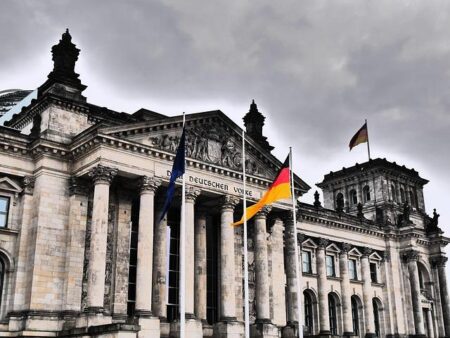Early forecasts from local elections across Germany indicate a significant surge in support for far-right parties, with vote shares reportedly tripling compared to previous years. The unexpected rise has sent shockwaves through the political landscape, raising concerns about the growing influence of extremist ideologies at the grassroots level. This development comes amid ongoing debates about immigration, national identity, and economic uncertainty, underscoring the volatile nature of contemporary German politics.
German Far Right Surges in Local Elections Raising Concerns Over Political Stability
The recent local elections in Germany have marked a significant shift in the political landscape, with far-right parties experiencing an unprecedented surge in voter support. Early forecasts indicate that these groups have tripled their backing compared to previous elections, signaling a growing resonance with their nationalist and anti-immigration platforms among certain segments of the electorate. This rise challenges the traditional dominance of centrist parties and has prompted widespread concern about the implications for Germany’s democratic stability and social cohesion.
Political analysts highlight several factors contributing to this shift, including economic uncertainty, immigration debates, and disillusionment with mainstream parties. Key features of this electoral development include:
- Increased voter turnout among younger demographics sympathetic to far-right rhetoric.
- Localized campaign strategies that effectively mobilized grassroots support.
- Heightened polarization surrounding national identity and security issues.
| Party | Previous Vote Share | Current Forecast | Change |
|---|---|---|---|
| Far Right Coalition | 8% | 24% | +16% |
| Center Right (CDU/CSU) | 33% | 28% | -5% |
| Social Democrats (SPD) | 25% | 22% | -3% |
Analysis of Voter Trends Reveals Shifts in Public Sentiment and Regional Variations
Recent election data reveals a significant realignment in voting patterns, underscoring a surge in support for far-right parties across several German regions. This rise appears strongly correlated with areas experiencing economic stagnation and heightened concerns over immigration and national identity. Meanwhile, traditional centrist parties witnessed a gradual erosion of their voter base, particularly among younger demographics and suburban constituencies. The data reflects a nuanced landscape where public sentiment is increasingly fragmented, with socio-economic factors and regional disparities driving distinct political preferences.
Key shifts identified include:
- Tripling of far-right support in previously moderate districts
- Growing voter turnout in smaller towns contrasted with urban declines
- Regional variations highlighting stronger far-right gains in the east versus west
| Region | Far-Right Vote Increase (%) | Voter Turnout Change (%) | Dominant Issue |
|---|---|---|---|
| Saxony | 230% | +5% | Immigration |
| Brandenburg | 180% | +3% | Economic Decline |
| Bavaria | 140% | -2% | National Identity |
| North Rhine-Westphalia | 115% | +1% | Social Services |
Experts Call for Policy Reforms and Community Engagement to Counter Rising Extremism
In light of the alarming surge in far-right support demonstrated in recent local elections, experts urge a multifaceted approach involving policy reforms and enhanced community engagement to effectively address the growing threat of extremism. Authorities emphasize the need for stricter regulations on hate speech and online platforms that facilitate radicalization, alongside stronger educational programs promoting democratic values and critical thinking among youth. This comprehensive strategy aims to dismantle the socio-political conditions that extremist groups exploit to expand their influence.
Community leaders also stress the importance of fostering inclusive dialogue and social cohesion at the grassroots level. Initiatives proposed include:
- Local forums encouraging open conversations across diverse groups
- Support networks for families affected by radicalization
- Strengthening partnerships between civil society and law enforcement
| Key Focus | Proposed Actions |
|---|---|
| Policy Reforms | Hate speech laws; Social media regulation |
| Education | Democratic values; Critical thinking workshops |
| Community Engagement | Local dialogues; Family support |
Future Outlook
The sharp rise in support for far-right parties in Germany’s local elections signals a shifting political landscape that could have significant implications for both domestic policy and European stability. As early forecasts reveal a tripling of their vote share, analysts and policymakers alike are closely monitoring how this surge will influence future governance and social cohesion. The coming weeks will be critical in understanding whether this trend represents a temporary backlash or a more entrenched realignment within Germany’s political spectrum.




